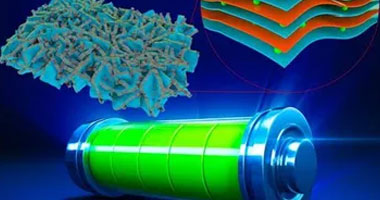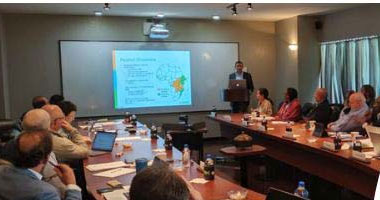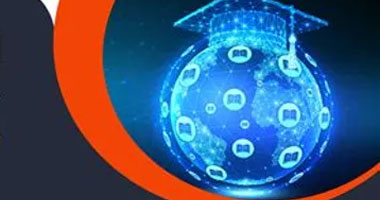Is Artificial Intelligence (AI) the "next" Electricity?

Geoff Works,
Vice President, Five9.
The Three Laws of Artificial Intelligence
I’ve been intrigued by Artificial Intelligence (AI) since first reading “The Foundation” novels by Isaac Asimov as a kid. “The Foundation” novels were actually the last elements of his “Robot”, “Empire”, and “Foundation” series - which essentially documented humankind’s expansion beyond Earth, to the colonization of nearby worlds, up to and including the creation of a Galactic civilization. It was in these series of novels that Asimov (back in 1942!) created the 3 Laws of Robotics. These 3 laws governed how Robots could interact with humans and how we protected ourselves from these human-looking AI robots becoming our robotic overlords. The 3 Laws are: 1) A robot may not injure a human being or, through inaction, allow a human being to come to harm. 2) A robot must obey orders given it by human beings except where such orders would conflict with the First Law. 3) A robot must protect its own existence as long as such protection does not conflict with the First or Second Law. The reality is - we may have to substitute "AI" in place of "robot" over the next few years and amend the laws to the 3 Laws of Artificial Intelligence.
The type of Artificial Intelligence that Asimov foresaw over 75 years ago and the overwhelming potential benefits thereof, as well as concern around its potential power (i.e. - “Terminator”, “Maximum Overdrive”), until recently, was not something that was anywhere close to being a reality. However, over the past few years, we’ve seen a dramatic shift in the potential of Artificial Intelligence. The reason for the drastic acceleration in AI becoming a reality is due to a variety of different factors including increased computing power; but one of the most important factors is the increasing prevalence of “cloud” technologies and commensurately, the overwhelming inherent amounts of data that come along with these cloud services & solutions.
"Data" is really the driver behind some of the under-pinnings of AI, such as Machine Learning and Deep Learning.. and because of the tremendous amounts of data now at our disposal, the true potential & emergence of AI is on our horizon.
The widespread deployment and adoption of AI will fundamentally alter the way humanity lives and works. One of the best quotes that encapsulates this potential is from Andrew Ng (one of leading experts in Deep Learning) - “AI is the new electricity.” Admittedly, that quote hit me a like a ton of bricks.. It instantly and irrevocably transformed the way I view Artificial Intelligence and the place it has in humanity's future history. Think about that quote for a minute and truly reflect on how life-altering electricity was for people in the late 19th century and, of course, in today’s world. Think electric lighting vs. gas lamps.. with the introduction of the electric lightbulb, all of a sudden, the world could run 24 hours a day now regardless of it being day or night. Think about the household refrigerator.. it entirely changed the way people ate and socialized. Families were no longer dependent on daily shopping or on ice delivery (as one small example). Ice wagons (& the vast majority of the ice industry) became a thing of the past - more on this later as we visit the economic impact that widespread underlying technological change has on a society. By the 1920s, the household refrigerator was an essential household appliance. These are just some small examples of how the introduction of electricity changed people’s lives over 100+ years ago. Fast forward to today and think about our day-to-day lives without electricity. From Communication (smartphones, communication devices, laptops, computers, etc..), Entertainment (TV’s, radios, Video game consoles, computers, etc..), Work (anyone have a job here that does not rely on electricity?), Transportation, Food, Home, etc.. The world economy would basically shutdown if an EMP (electro-magnetic pulse) were to hit any major city in the World and shut down all electrical devices. Electricity is the underlying fabric that makes the world run today.
The point in highlighting the importance of electricity and its introduction into everyday life - is to now apply that same line of thinking into the potential of Artificial Intelligence and where we are today on this emerging capability relative to where we were in the late 1800’s w/ electricity.
We haven’t even scratched the surface yet of the true capabilities of AI. Further, those of us with younger children (<10 yrs old - my son specifically, who is 9 years old)... if you think about it, they probably interface with an AI via voice (Think Alexa or Siri) more than an actual Computer. Interfacing with a Computer via voice, to me, just based on muscle memory, “feels” awkward. I do it on a daily basis with Alexa - but it still doesn’t feel “natural” to me. I don’t have to say “Please” or “Thank you” and it just feels like I’m ordering Alexa around. Whereas to my son - he doesn’t even think twice about it. As far as he’s concerned, humans have always been able to interface with Computers with their voice! The point of highlighting the above example is that AI adoption will also accelerate as upcoming generations, who grew up with AI as the norm, enter the workforce and are more accepting of AI as a natural extension of human augmentation - as opposed to those of us who didn't grow up talking back and forth with an Alexa or Siri or Google Home. Imagine the possibilities as AI becomes more pervasive throughout society, people’s psyche and our everyday lives.
The AI Economy
The potential impacts of widespread adoption of AI on the worldwide economy & workforce are immeasurable. Positive or Negative the overall effects obviously remain to be seen. The instinctive response (based on the History of how economies have been previously affected by life-altering changes in Technology) is that this will undoubtedly dramatically effect the workforce. The initial benefits of AI being discussed by companies deploying Contact Center as a Service (CCaaS) offerings are an ultimate reduction in human agents - thereby increasing efficiency, increasing speed to Resolution for their Customers, decreasing costs, and decreasing staff. Another example would be, as self-driving cars become more prevalent, what happens to the ~3+ million Uber/Lyft drivers worldwide that drive full-time or part-time? Or further, what happens to any other occupation that revolves around manning a vehicle of some kind? Even with these small examples, the changes to the workforce seem profoundly negative; however, historically speaking, this isn’t uncommon. Any of the society-changing technological revolutions or technologies have traditionally shifted employment from one job sector to newly created job sectors - and to employment we can’t even think of at this point. Who would have thought 10 years ago that there would be 3 million+ people employed by “ride-sharing”services in 2018. I don’t even think the concept of “ride-sharing” or Mobility-as-a-Service was even out there yet. The process of new technological introduction (where a technology is brand new to the world) or technological displacement (as one technology supersedes an older, inferior technology) can be messy and confusing for a period of time as well. Laws and regulations, as well as people’s perceptions and growth into daily use, take time to adjust and work their way into everyday society. We are in the infant stages of these changes currently... but they are imminent.
Artificial Intelligence has the potential to entirely alter the way humanity interacts with the world around it and the people within it. What happens to our lives on a daily basis when every individual has a Personal AI Assistant (PAIA)? Does everyone give their PAIA it’s own unique name? Does my PAIA have “skills” or capabilities different from my wife’s? Alexa already has the ability to have thousands of “skills” depending on what the person who “owns” the Alexa downloads and is interested in. At what age do we give children their own PAIA’s? Think about the potential for changing the way children are educated. It’s common knowledge at this point that everyone learns “differently” - different teaching styles resonate with children in entirely different ways. Can AI help understand how each child’s learning style more effectively and then better create a curriculum or learning plan custom-tailored & catered to how each child learns? Do families have a separate AI for the entire family (FAIA’s?) or do their PAIA’s operate cohesively as a unit through some hierarchical logic that can communicate to other people’s Familial AI units? How about Corporate AI Assistants (CAIA’s)? Would businesses each have a unique CAIA (similar to how businesses today each have their own unique email domains) that interfaces with other CAIA’s, thereby reshaping B2B relationships? What happens if an XAIA (PAIA, FAIA, CAIA, etc..) gets “hacked”? Where do the logs from the Speech Recognition go? Who owns them? What happens when the Government wants to review people’s PAIA logs? What more can the Government (or other Multi-National Corporation (MNC), learn or know from obtaining people’s PAIA logs? What happens when cybernetic implants become a reality and I can embed a computer chip in my brain? I can interface with my PAIA via thought (theoretically..) and be linked to the Internet and everyone else by a mere thought. How much control do we give these PAIA’s over our daily lives? What happens when we wake up and our PAIA has already scheduled our day (based on our history, traffic patterns in the area, meetings, what’s in the fridge and what isn’t..) automatically order the necessary ingredients for dinner and have them shipped for delivery by autonomous drone by 4pm by Whole Foods/Amazon? Do our days begin to automagically become scheduled for us? Who is actually working for who at that point??!
I’m purposely taking it to the absurdity to a point.. but in reality, is this line of thinking really that absurd? You can see humanity developing towards this trend if AI has the ability to deliver what it potentially promises. Not going to lie, AI scares the hell out of my wife. Whereas, I am obviously extremely excited about it - if it is implemented responsibly and sanely. I foresee tremendous benefits to the human race - but I can also see a version of reality where we all turn into the people on “Wall-E.” The direction that humanity takes with incorporating AI sensibly and responsibly will be up to our Generation (X), the Millenials, the Y & Z Generations, and those of our children. More to come on this topic - but this will be the beginning of my series of musings of AI potential & impact.
Subscribe to Industry Era
News
This Apple Watch Case Could Kill All of Those Wannabe AI Devices
Google defends AI search results after they told us to put glue on pizza
Google scales back AI search answers after it told users to eat glue
FAA won't approve increased 737 Max production in near future
Thursday was a sour day for the US economy — with an important silver lining
OPEC+ working on complex production cut deal for 2024-2025, sources say
Stock futures inch lower as investors review earnings, brace for inflation report: Live updates
Salesforce Shares Plunge by Most Since 2008 After Weak Outlook
Jeep’s Wagoneer S Trailhawk concept teases a fully electric off-roader
Gap’s stock jumps 23% as the retailer swings to profit and raises guidance
Medline recalls 1.5 million bed rails linked to deaths of 2 women
Oil falls as Fed policymakers look to maintain rate cuts, gasoline stocks rise










